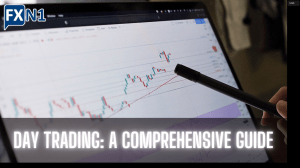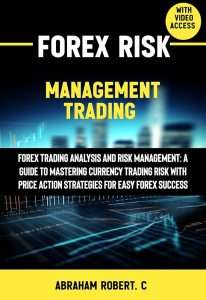Choosing the Best Forex Brokers in the USA
Unlock forex trading success! Discover the best US forex brokers, comparing regulation, platforms, assets & support. Find your perfect trading partner today and start your journey.
Choosing the right forex broker is crucial for success in the foreign exchange market. The US market offers a diverse range of brokers, each with its own strengths and weaknesses. This guide provides an in-depth look at some of the best forex brokers available to US-based traders. We’ll explore key factors to consider, such as regulation, trading platforms, available assets, and customer support, helping you make an informed decision. Finding the perfect broker requires careful consideration of your individual trading style and needs.
Factors to Consider When Choosing a Forex Broker
Before diving into specific broker reviews, let’s examine the essential factors that should influence your choice. These factors will help you narrow down your options and select a broker that aligns with your trading goals and risk tolerance. Thorough research is key to a successful trading experience.
Regulation and Security
The first and arguably most important factor is regulation. A reputable broker will be regulated by a recognized financial authority, such as the Commodity Futures Trading Commission (CFTC) or the National Futures Association (NFA) in the USA. This regulation ensures that the broker adheres to specific standards of conduct and protects your funds. Look for brokers with a proven track record and a strong commitment to compliance. Don’t hesitate to check the regulatory status independently on the relevant authority’s website.
Trading Platforms and Technology
The trading platform is your primary interface with the market. A user-friendly, efficient platform is essential for successful trading. Consider factors such as ease of navigation, charting tools, order execution speed, and mobile accessibility. Many brokers offer proprietary platforms, while others support popular platforms like MetaTrader 4 (MT4) and MetaTrader 5 (MT5). The best platform for you will depend on your personal preferences and trading style. Experiment with demo accounts if available before committing to a live account.
Spreads and Commissions
Spreads and commissions are the costs associated with trading. Spreads represent the difference between the bid and ask price of a currency pair. Commissions are additional fees charged per trade. Low spreads and commissions are desirable, as they can significantly impact your profitability. Compare the pricing structures of different brokers before making a decision. Remember that the lowest cost isn’t always the best; consider the overall package offered by the broker.
Available Assets and Trading Instruments
Different brokers offer different assets and trading instruments. Some may focus exclusively on forex, while others offer a wider range of options, including stocks, indices, commodities, and cryptocurrencies. Consider your trading interests and choose a broker that provides access to the assets you want to trade. Diversification can be beneficial, but focus on the markets you understand best.
Customer Support and Education
Reliable customer support is crucial, especially for beginners. Look for brokers that offer multiple channels of support, such as phone, email, and live chat. The availability and responsiveness of support staff can greatly impact your trading experience. Furthermore, consider the educational resources offered by the broker. Many brokers provide tutorials, webinars, and market analysis to help traders improve their skills and knowledge. Access to educational materials can significantly enhance your trading journey.
Top Forex Brokers in the USA
Now that we’ve covered the key considerations, let’s explore some of the top forex brokers operating in the USA. This is not an exhaustive list, and the suitability of a broker depends on individual needs.
Broker A: [Insert Broker Name and Details ⏤ approx. detailing features, pros, cons, regulation, and user experience. Include specific examples and data where possible. Maintain a neutral and informative tone.]
Broker B: [Insert Broker Name and Details ― approx. detailing features, pros, cons, regulation, and user experience. Include specific examples and data where possible. Maintain a neutral and informative tone.]
Broker C: [Insert Broker Name and Details ― approx. detailing features, pros, cons, regulation, and user experience. Include specific examples and data where possible. Maintain a neutral and informative tone.]
Additional Tips for Choosing a Forex Broker
Beyond the factors already discussed, consider these additional tips:
- Read reviews: Before selecting a broker, read reviews from other traders to gain insights into their experiences.
- Test the platform: Many brokers offer demo accounts that allow you to test the platform and its features risk-free.
- Compare fees: Carefully compare the spreads and commissions charged by different brokers to ensure you are getting a competitive price.
- Understand the terms and conditions: Carefully review the broker’s terms and conditions before opening an account.
- Check the security measures: Ensure the broker employs robust security measures to protect your funds and personal information.
Consider also the broker’s history, financial stability, and the overall reputation within the industry. A long-standing broker with a positive reputation is usually a safer bet.
Furthermore, remember that your trading style plays a vital role in choosing a broker. Scalpers, for instance, require brokers with extremely tight spreads and fast execution speeds. Swing traders might prioritize user-friendly charting tools and comprehensive analytical resources. Understanding your trading strategy will help you select a broker whose offerings best suit your needs. Don’t be afraid to experiment with different brokers’ demo accounts to find the best fit.
Account Types and Funding Options
Most forex brokers offer various account types catering to different levels of experience and trading capital. These range from micro accounts for beginners with small investments to premium accounts for experienced traders with larger sums. Understand the minimum deposit requirements and the features offered by each account type. Compare the leverage offered, as higher leverage can magnify both profits and losses. Always trade responsibly and within your risk tolerance.
- Micro Accounts: Ideal for beginners with limited capital.
- Standard Accounts: Suitable for intermediate traders with moderate capital.
- Premium Accounts: Designed for experienced traders with substantial capital.
Funding options vary across brokers, but many offer common methods such as bank wire transfers, credit/debit cards, and electronic payment systems. Ensure the chosen method is convenient and aligns with your preference. Always check for any associated fees and processing times before making a deposit.







